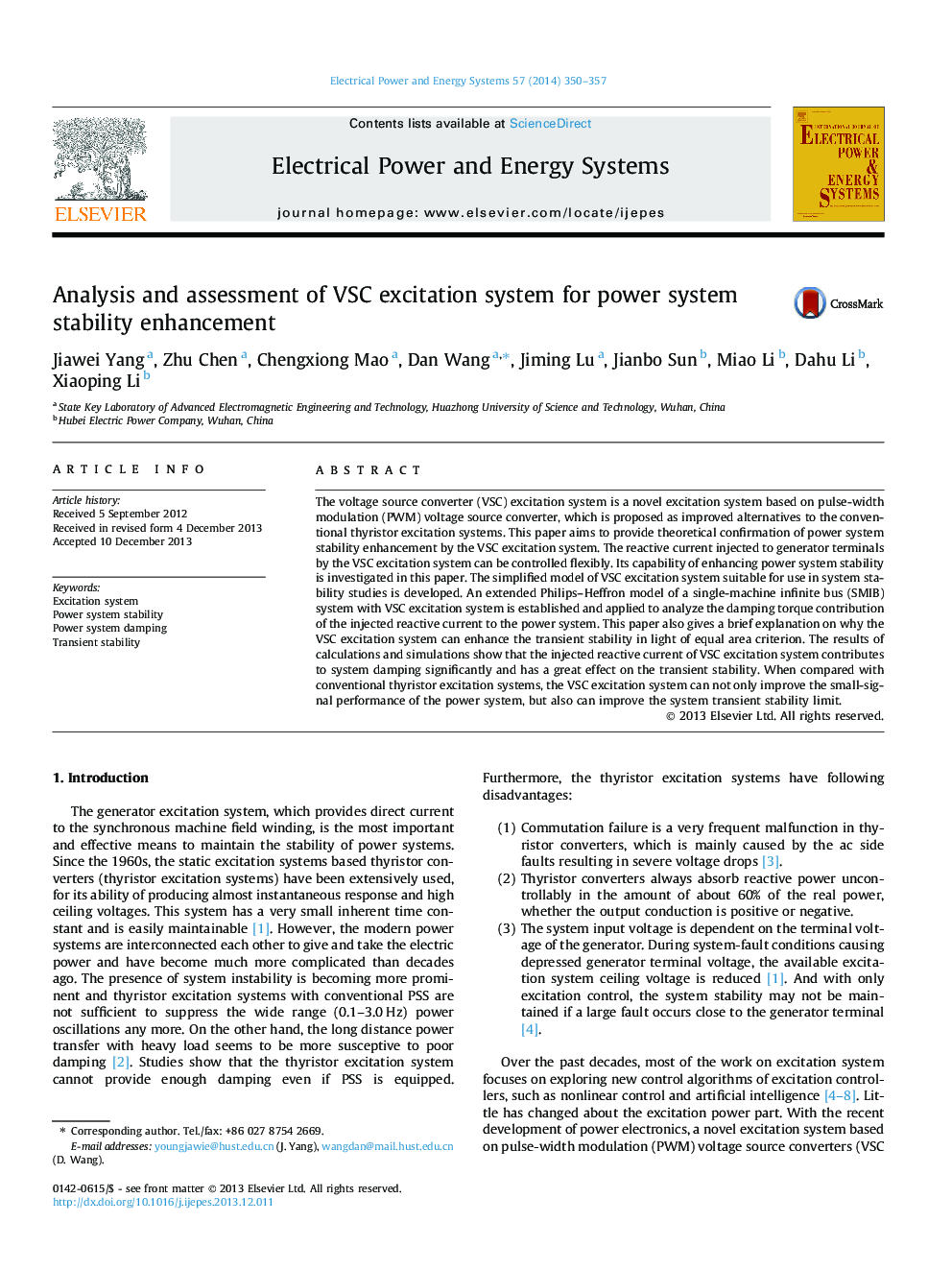| Article ID | Journal | Published Year | Pages | File Type |
|---|---|---|---|---|
| 399404 | International Journal of Electrical Power & Energy Systems | 2014 | 8 Pages |
•The VSC excitation system has an additional RPI to enhance power system stability.•The RPI contributes to system damping obviously through damping torque analysis.•The RPI has a great effect on system P–δ curve, thus improving transient stability.•The VSC excitation system improves power system stability significantly.
The voltage source converter (VSC) excitation system is a novel excitation system based on pulse-width modulation (PWM) voltage source converter, which is proposed as improved alternatives to the conventional thyristor excitation systems. This paper aims to provide theoretical confirmation of power system stability enhancement by the VSC excitation system. The reactive current injected to generator terminals by the VSC excitation system can be controlled flexibly. Its capability of enhancing power system stability is investigated in this paper. The simplified model of VSC excitation system suitable for use in system stability studies is developed. An extended Philips–Heffron model of a single-machine infinite bus (SMIB) system with VSC excitation system is established and applied to analyze the damping torque contribution of the injected reactive current to the power system. This paper also gives a brief explanation on why the VSC excitation system can enhance the transient stability in light of equal area criterion. The results of calculations and simulations show that the injected reactive current of VSC excitation system contributes to system damping significantly and has a great effect on the transient stability. When compared with conventional thyristor excitation systems, the VSC excitation system can not only improve the small-signal performance of the power system, but also can improve the system transient stability limit.
